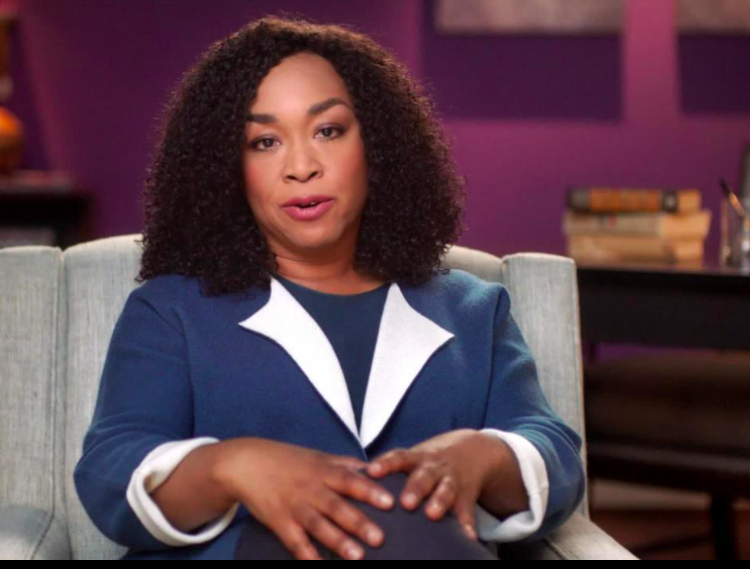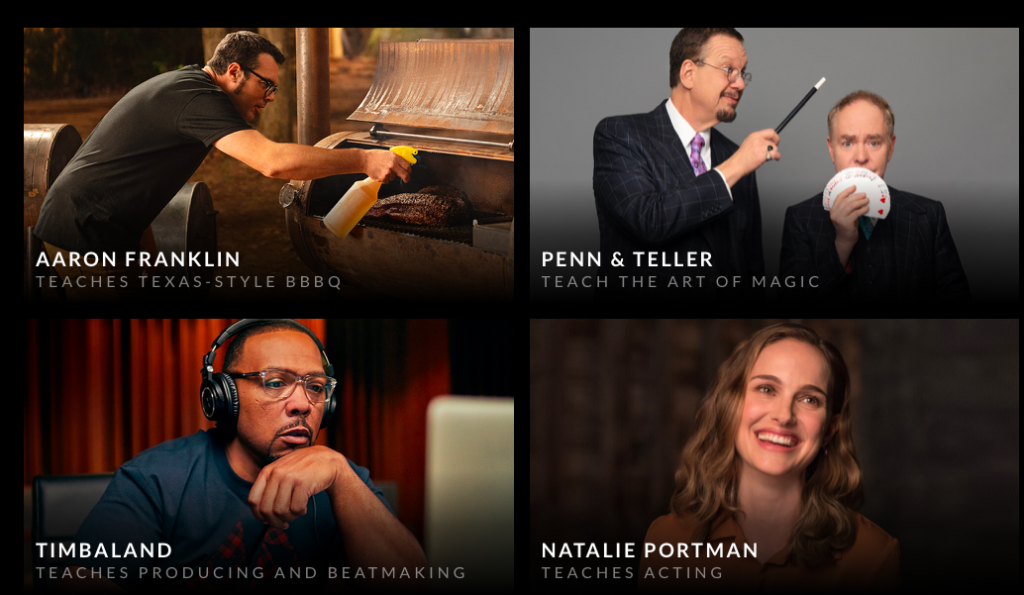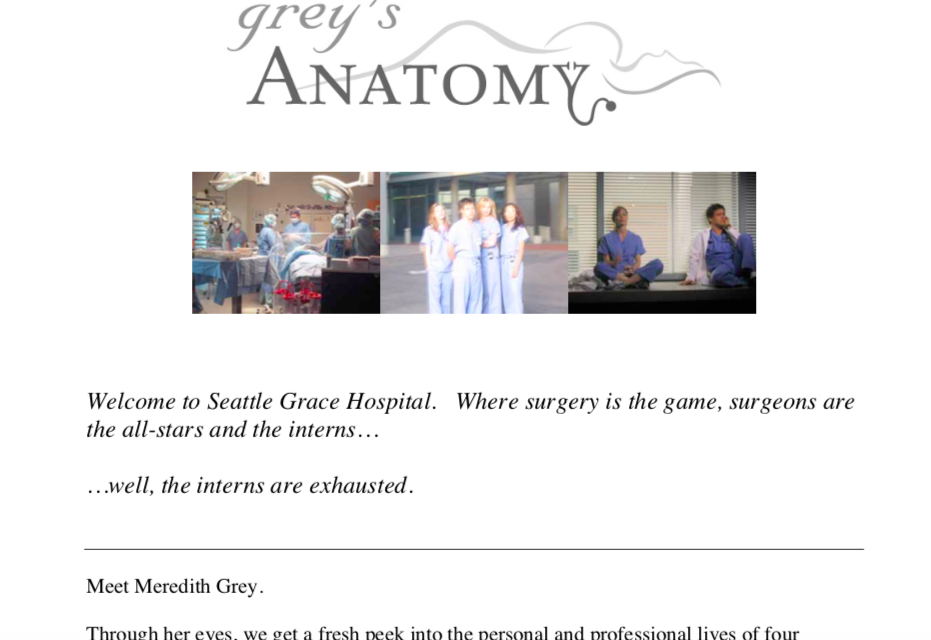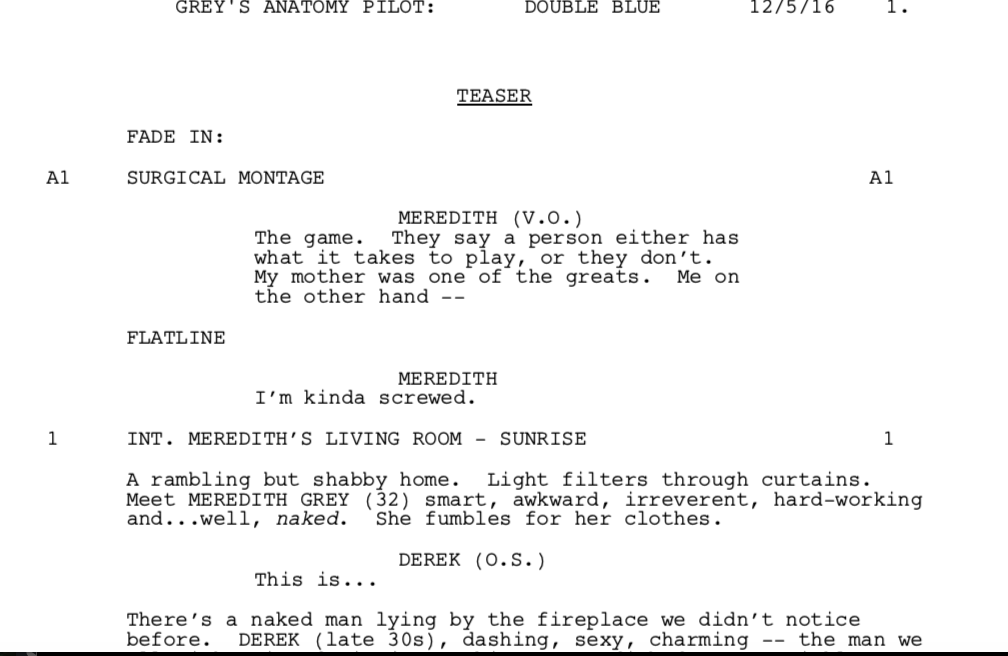
For anyone who doesn’t get the “McBrilliant” reference in today’s blog title, you obviously have never watched Grey’s Anatomy. That’s the ABC-TV medical drama — created by Shonda Rhimes — in which Derek, the best-looking neurosurgeon in the show is nick-named McDreamy and Mark, the equally hot-looking plastic surgeon is known as McSteamy.

How do I know about Derek and Mark? Good question. Anyone who knows me, or has even met me in passing, knows that I cannot deal with anything “medical.” I have to close my eyes at the merest suggestion that a needle might appear on screen. I spend a goodly portion of each Grey’s episode with my hands covering my laptop screen to shield me from slimy, pulsating organs and blood.
The last medical drama I watched was Dr. Kildare, and of course, some of you may recall, that was in black and white. Nevertheless, I was curious about Grey’s Anatomy. It’s been on TV for 15 seasons, and it’s creator Shonda Rhimes is also the creator of Scandal, another super-successful TV series.
Also, Game of Thrones was done, finished — and eight seasons of that show somewhat desensitized me to the sight of blood on screen.
Straight off with Grey’s Anatomy, I wondered why Rhimes had chosen to create and write a medical drama? I wondered if she had a medical background (because, well, “write what you know”) and if not, then how did she manage to write such authetic-sounding medical jargon?
MasterClass Experts

So, I accessed her MasterClass, Shonda Rhimes Teaches Writing for Television. MasterClass, in case you’ve never heard of it, offers online classes (for $90) by experts in their fields. Hence, Gordon Ramsey teaches Cooking, Christina Aguilera teaches Singing, Serena Williams teaches Tennis, and Shonda Rhimes is one of about 11 writers, authors and journalists who teach various kinds of writing. (DaVinci Code author Dan Brown is another whose MasterClass I signed up for and reviewed.)
I was somewhat skeptical that Shonda Rhimes could deliver online instruction to neophyte writers on how to write a TV pilot which a Hollywood producer or network would actually even look at, let alone produce. Indeed, what I heard in Shonda’s very first class was about her background in “film school,” then about her early career, writing for low-budget films and TV which then led to collaborating on a pilot for a TV show at ABC about female war correspondents. This was scrapped because of its untimeliness when America went into a real-life war with Iraq.
So, Shonda tells her online students, “I asked, “What does Bob Iger (then president of ABC Entertainment) want?” The answer she got was, a “medical show,” which she adds, “was great for me because I am fascinated by surgery.”
Get Me Bob Iger!

Yep, sign me up, I thought. All I need is Bob Iger’s phone number so that he can tell me what TV show he’s looking to put on his network.
Comments from fellow MasterClass students in this course raised the same chorus:
” How do I reach these executives to find out what they want?”
“How do we find out what kind of shows the suits are looking for at any given time?”
Or, Try This
 BUT, patience kiddies. Shonda provides all sorts of tips and info on how to deduce what producers are looking for (and hey, if you didn’t figure out two or three years ago that they’re all looking for “another Game of Thrones, but, maybe, set in space, or somewhere like that” then there’s absolutely no hope for you!)
BUT, patience kiddies. Shonda provides all sorts of tips and info on how to deduce what producers are looking for (and hey, if you didn’t figure out two or three years ago that they’re all looking for “another Game of Thrones, but, maybe, set in space, or somewhere like that” then there’s absolutely no hope for you!)
She also provides some information on how to break into the industry through network writer training programs, and how to attract the sort of attention that will land you a spot in a writers room. And no, it’s not the way Mindy Kaling does it in Late Night, her new movie with Emma Thompson — but usually necessitates writing your own pilot.
Money’s Worth

And, here Shonda gives you your money’s worth. She pretty quickly gets to the nitty gritty of coming up with ideas (a good TV idea must have “compelling characters doing compelling things”) and the necessity of being able to describe your idea in a sentence. For example, Grey’s one-line pitch was: Sex in the City but with four female surgical interns in a hospital.
Her MasterClass takes you step-by-step from researching your idea (“interesting how many people will help you when you say you’re writing a TV pilot”) to creating memorable characters — and the need to have one character who can act as a guide for the audience, like Quinn in Scandal. Rhimes also talks about developing outlines and effective writing habits.
Her instruction is Brilliant. McBrilliant. Meticulous. She deconstructs writing a script for network TV. That’s five acts with each act, 11 minutes long. She talks about writing a good opening, and illustrates with the original opening she conceived for Scandal — and then discarded. More importantly, she explains why she discarded it.
“Medical/Medical”
Writing authentic dialog is, perhaps, the least helpful of the instructional videos (“Hands down the one lesson that cannot be taught” said a class member in a comment with which I totally agree.) You either have an ear for it, or not. But, even here she comes up with a couple of useful cautions including, “Don’t write subtext as dialog. People almost never say what they mean.”
And, as for that authentic-sounding medical jargon? Shonda explains that in those places where more is needed than just “scalpel please”, she will often write “medical/medical” as a placeholder, and then fill in the necessary medical language after consulting with the show’s medical experts.
Shonda’s Gold Mine

What is almost worth the entire price of admission are the downloadable materials: Shonda’s show Bible (a document which introduces all the main characters and 12 episode ideas for the first season of Grey’s Anatomy /photo above;) the pdf of her pitch for Grey’s Anatomy, and the pilot scripts for Grey’s Anatomy and Scandal.
Shonda’s MasterClass is a gold mine of useable information/instruction. As with most other MasterClasses, there is a workbook; you can join an online community to discuss your ideas or ask questions. There are even “office hours” when Shonda will answer specific questions videotaped by students.
Invaluable Scripts

Her workbooks and downloadable scripts used together with Shonda’s video instruction as she goes through the actual work of writing each act of a pilot (for Scandal) are invaluable to any writer who has mastered the basics of telling a story, but wants to adapt his/her writing for television.
As David S. Rudin wrote in Vox.com about the concept of MasterClass in general: “Even if the dream of playing tennis like Serena Williams or collecting Michelin stars like Gordon Ramsey doesn’t come true — and, it won’t — you can still fall back on playing tennis and maybe hosting some dinner parties.”
In the case of Shonda’s Writing For Television, I think it’s totally possible to use her MasterClass to produce a serviceable pilot script and ideas for a first season of network television — a product at least which could be worked on in a writers room.
However, then turning it into a long-running series that millions of viewers will watch on TV is another matter. There is some advice on how to work in a writers room, and eventually produce your own ideas for a TV series. But there is no clear-cut answer on how to get a producer or network executive to turn to the first page of a spec script which you have produced in your little study, working on it weekends.
I guarantee it’s as difficult as finding a literary agent and/or publisher for your novel.
‘Nuff said!
I just started Shonda Rhimes Masterclass as well. I loved Dan Brown’s as that was my genre, but am interested in listening to any writing Masterclass. FYI, you can get the All Access pass for $180 a year. I renew every year! I Love the Masterclass concept.
You’re right. The $180 all-access pass is a terrific deal. I have one, too. Let me know how you like Shonda’s class. She really has a great personality!